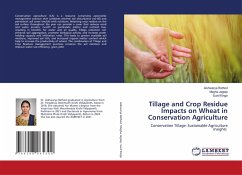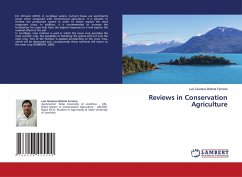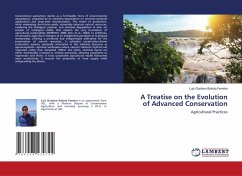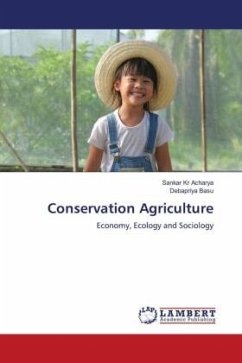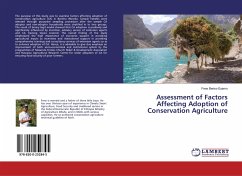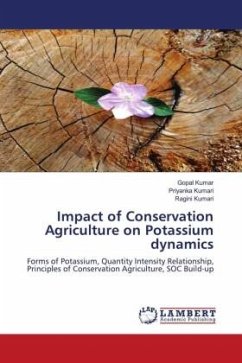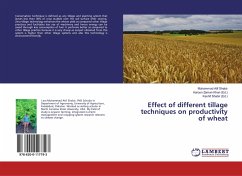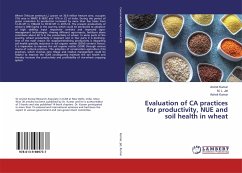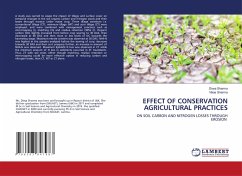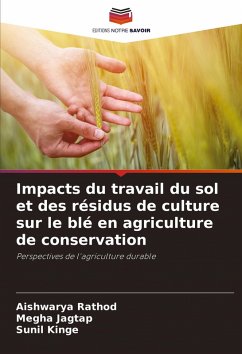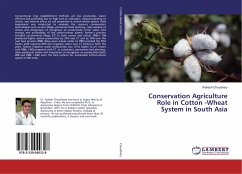
Conservation Agriculture Role in Cotton -Wheat System in South Asia
Versandkostenfrei!
Versandfertig in 6-10 Tagen
37,99 €
inkl. MwSt.

PAYBACK Punkte
19 °P sammeln!
Conventional crop establishment methods are less productive, water efficient and profitable due to high cost of cultivation, delayed planting of wheat, and adverse effect on soil properties in cotton-wheat system. Field experiment was conducted to evaluate the resource conservation technologies such as zero tillage, permanent bed planting, relay seeding of wheat and integration of mungbean on productivity (crop, water and energy) and profitability of the cotton-wheat system. Farmer's practice included conventional tillage (CT) in both cotton and wheat. PBBc+ MB produced higher system productiv...
Conventional crop establishment methods are less productive, water efficient and profitable due to high cost of cultivation, delayed planting of wheat, and adverse effect on soil properties in cotton-wheat system. Field experiment was conducted to evaluate the resource conservation technologies such as zero tillage, permanent bed planting, relay seeding of wheat and integration of mungbean on productivity (crop, water and energy) and profitability of the cotton-wheat system. Farmer's practice included conventional tillage (CT) in both cotton and wheat. PBBc+ MB produced higher system productivity by 37% over CT and by 10% over the next best practice (PBB). Relay sown wheat under on PBB recorded the 50% higher yield required 40% less irrigation water over CT wheat in both the years. System irrigation water productivity was 131% higher (2 yrs' mean) with PBBc +MB compared with CT. In conclusion, permanent bed planting, relay seeding of wheat and integration of mungbean on productivity (both PBB and PBBc +MB) were the best options for sustainable Cotton-wheat system in NW India.



